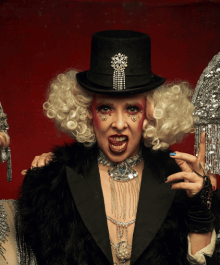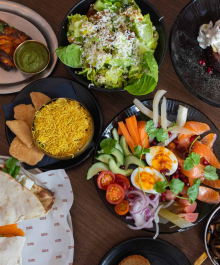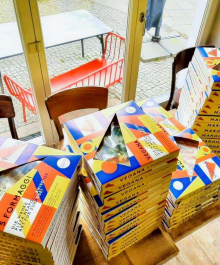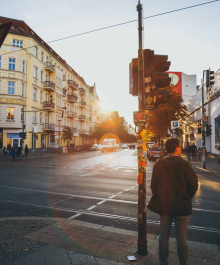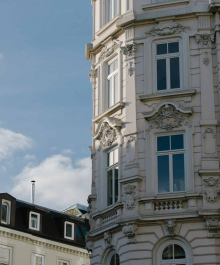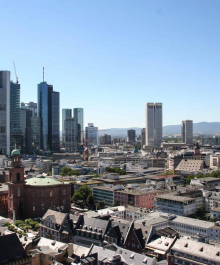
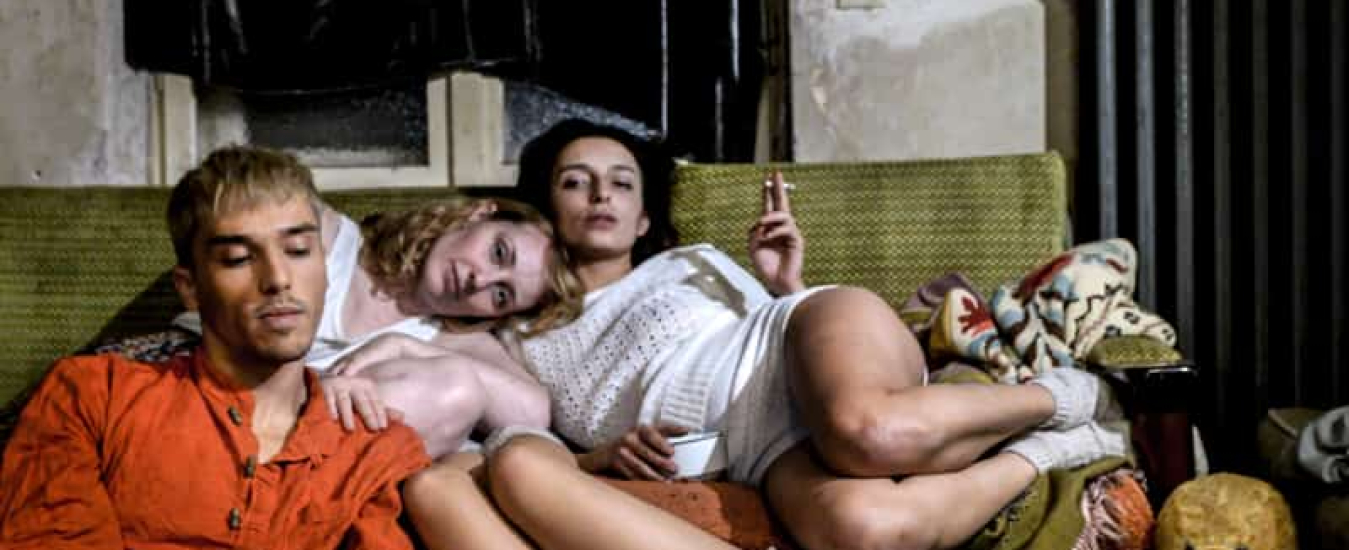
The Cult Beckons From A Former Butcher Shop. Finally, You’re Home
By Allison Krupp . December 7, 2016
Rathaus Neukölln grit. A former butcher shop, with its rusting, naked hooks still hanging, its floors slanted for slit necks, pouring blood. And a ragtag troupe of damaged and demented women, turning doe eyes to a charismatic, Jesus-like figure--like many of us, searching for somewhere, anywhere to “fit in.”
This is: YOUR HOME IS WHERE YOU’RE HAPPY, an immersive performance (with title based on a fun little jingle by renowned singer-songwriter Charles Manson himself) on December 8 and 10 at Gelegenheiten, poised to fuel empathy, without romanticizing the abused or the abuser. The show’s a collaboration between a small team of multidisciplinary artists from the fringe theater and performing arts scenes in Berlin, along with Vienna, Cologne, London, and Copenhagen.
I sat down with director Jos Porath to learn a bit more about this in-depth experience and our fascination with the horror and sex of ’60s and ’70s cults and counterculture.
How does the intimacy/the environment of the butcher shop add to the experience of YOUR HOME IS WHERE YOU’RE HAPPY?
Spaces have histories, and I think they have memories too, like actual memories that are imprinted in the walls and floors and ceilings, and so working site-specifically makes a lot of sense to me. I was drawn to the violence inherent in a place where slaughtering, meat, and blood characterized the everyday, and many of the original features are still there: tiled rooms, meat hooks, slanted floors to drain the blood. At the same time it’s also an elegant and beautiful space. It’s the juxtaposition that intrigues me: how something raw, grim and brutal can coexist with this kind of allure. It’s a challenging combination to respond to in a nuanced way.
What drew you to this subject matter?
It feels timely to explore notions of abuse of power by leaders who pry on vulnerable people; to engage with the seduction that takes place, and think about the idea of “community” critically.
In an immersive performance such as this, how do the audience members come to feel a part of the performance?
The world we create appeals to all the senses. We are first and foremost interested for our guests to have an experiential rather than an intellectual engagement with our microcosm. There was never a fourth wall to begin with, and so neither our guests nor performers need to break anything down. By the same token, we don’t play for an audience — we play with them, and so they really are central to everything that takes place.
Do you think in watching it, the audience members will be able to experience or empathize with the commune members, or begin to comprehend how people are led down this path?
Empathy can be such a complicated emotion, and it is also the only when we empathize that we try to understand what moves people to do what they do and be who they are. Pointing fingers and condemning is too simplistic, and often a little cowardly too. The point is not to romanticize being an abuser. or a victim. We are interested in challenging our guests and keeping them in situations that raise certain, perhaps uncomfortable questions.
What is it about communes or the Manson girls that’s so electrifying for the rest of us? Is the line so thin that anyone could cross it?
I think most people (myself included, until I started looking in to it more) are electrified at the myth rather than the reality of most historical examples of commune living, and certainly of the Manson girls. There is something uniquely glamorized about 1960s and ’70s communes: that fusion of sex, drugs, spirituality and an overarching sense of incredible intimacy which sidesteps all the emotional, physical and sexual violence that especially the women in these communities were frequently exposed to. The yearning for a home where enlightened and authentic living is possible is alive and well, and while I can wholly relate to that desire, I am also fascinated by how steadfast people are in turning a blind eye to how in reality so many of these communes were really cults, and how many of their gurus were manipulators and abusers. I find this co-existence of Freigeist utopia and crushing dystopian reality amazing.
Do you see any similar “movements” in modern-day Berlin?
I think there are always going to be countercultural pockets of living that celebrate principles of hedonism, authentic self-expression and community, and Berlin, (in)famously, seems to attract many of them. I just hope that there truly has been a shift toward respect, tenderness and care for each other to counter the way that history has taught us.
Jos Porath. Cults. Berlin Loves You.
YOUR HOME IS WHERE YOU’RE HAPPY
December 8 and 10 at Gelegenheiten
Weserstr. 50, Berlin
